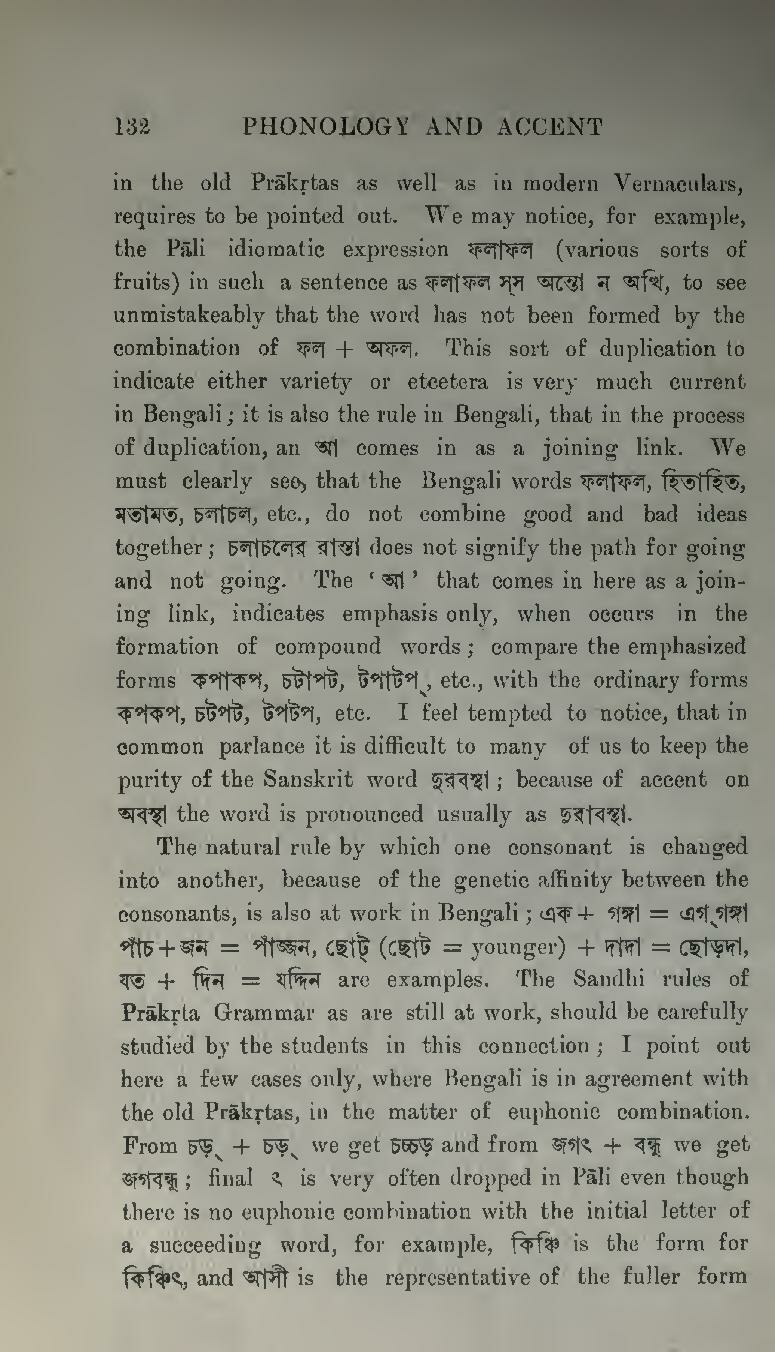in the old Prākṛtas as well as in modern Vernaculars, requires to be pointed out. We may notice, for example, the Pāli idiomatic expression ফলাফল (various sorts of fruits) in such a sentence as ফলাফল স্স অন্তো ন অত্থি, to see unmistakeably that the word has not been formed by the combination of ফল + অফল. This sort of duplication to indicate either variety or etcetera is very much current in Bengali; it is also the rule in Bengali, that in the process of duplication, an আ comes in as a joining link. We must clearly see, that the Bengali words ফলাফল, হিতাহিত, মতামত, চলাচল, etc., do not combine good and bad ideas together; চলাচলের রাস্তা does not signify the path for going and not going. The 'আ' that comes in here as a joining link, indicates emphasis only, when occurs in the formation of compound words; compare the emphasized forms কপাকপ, চটাপট, টপাটপ্, etc., with the ordinary forms কপকপ, চটপট, টপটপ, etc. I feel tempted to notice, that in common parlance it is difficult to many of us to keep the purity of the Sanskrit word দুরবস্থা; because of accent on অবস্থা the word is pronounced usually as দুরাবস্থা.
The natural rule by which one consonant is changed into another, because of the genetic affinity between the consonants, is also at work in Bengali; এক + গঙ্গা = এগ্গঙ্গা পাঁচ + জন = পাঁজ্জন, ছোট্ (ছোট = younger) + দাদা = ছোড়দা, যত + দিন = যদ্দিন are examples. The Sandhi rules of Prākṛta Grammar as are still at work, should be carefully studied by the students in this connection; I point out here a few cases only, where Bengali is in agreement with the old Prākṛtas, in the matter of euphonic combination. From চড়্ + চড়্ we get চচ্চড় and from জগৎ + বন্ধু we get জগবন্ধু; final ৎ is very often dropped in Pāli even though there is no euphonic combination with the initial letter of a succeeding word, for example, কিঞ্চি is the form for কিঞ্চিৎ, and আসী is the representative of the fuller form
